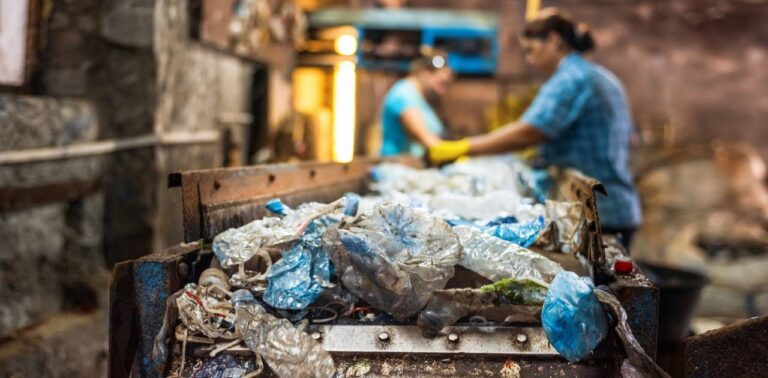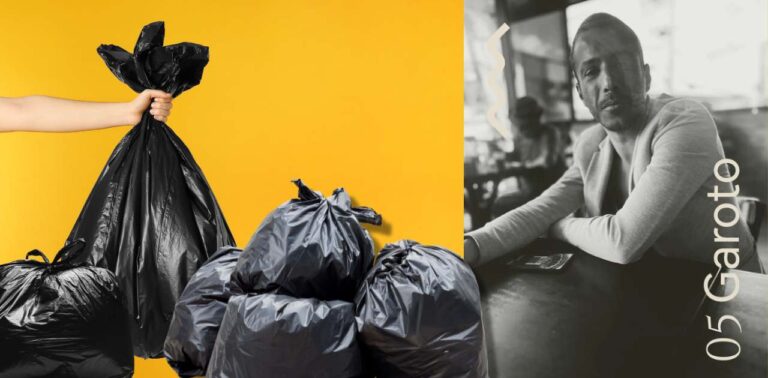Did you know there’s a growing debate about whether recycling plastic is a scam? A recent 68-page report from the Center for Climate Integrity revealed that, in many cases, the idea that recycling plastic is an effective solution may be a myth. The report investigates the plastics industry and reveals that for decades, companies have been misleading the public with promises of sustainable practices.
Index
The Plastic Industry and the Hidden Truth

The report points out that despite advertising campaigns in favor of recycling, many of the largest plastics producers were aware that recycling was not a viable solution. Companies that promoted recycling as a path to sustainability knew behind the scenes that the process was not economically viable. Marketing campaigns painted an optimistic picture, while the technical and economic reality was quite different.
Plastic, which is made from petroleum, is extremely difficult to recycle due to its complex composition. The thousands of chemical components present in plastic make the separation and treatment process nearly impossible and extremely expensive. The cost of recycling plastic can often be higher than that of producing new plastic. Furthermore, plastic degrades with each use cycle, limiting the number of times it can be recycled. This leads many people to believe that recycling plastic is a scam.
Is Recycling Plastic a Scam?
The idea that recycling plastic is a scam is a central theme of the report. Evidence suggests that recycling, as proposed by the industry, is more of a stopgap solution than a real answer to the problems caused by plastic. While recycling is promoted as a sustainable solution, the report reveals that in practice it is a way of diverting attention from the real problems associated with plastic.
The plastics industry, by promoting recycling as a viable solution, may have diverted public attention from more pressing needs, such as reducing plastic production and consumption. The report suggests that instead of focusing on recycling, which is a limited solution, we should focus our efforts on reducing plastic production and finding more sustainable alternatives.
The Role of Plastic Recycling in Brazil
In Brazil, the situation of plastic recycling reflects many of the problems highlighted in the report. Plastic recycling in the country still faces significant challenges. Although there is a structure for collecting and processing plastic waste, many of these systems are ineffective due to a lack of investment and political support. Plastic recycling in Brazil could advance significantly if there were stronger interest from politicians and economic sectors.
Furthermore, Brazil has considerable potential to improve waste management, but often faces obstacles related to political and economic interests. The lack of an integrated and effective approach to plastic recycling jeopardizes progress towards a sustainable solution to the plastic waste problem.
What is the Solution if Recycling Plastic is a Scam?
If recycling plastic is a scam, then what is the alternative? The main recommendation is to reduce the production and consumption of plastic. The focus should be on reducing the amount of plastic we come into contact with on a daily basis, as well as looking for more sustainable and environmentally friendly alternatives. The report suggests that instead of relying on recycling, we should focus our efforts on reducing the demand for plastic and promoting the use of recyclable and biodegradable materials.
Reducing plastic production and adopting more responsible consumption practices are crucial steps to addressing the plastic waste crisis. Implementing policies that encourage the use of sustainable alternatives and promoting education about the environmental impact of plastic can help mitigate the problem.
How the Plastics Industry Influences Public Perception
The plastics industry has a history of effective marketing that has shaped public perceptions of recycling. By promoting the idea that recycling plastic will solve the problem, the industry has diverted attention from more effective solutions. The report reveals how misleading advertising can influence consumer behavior and how public perception can be manipulated to favor corporate interests.
By understanding the true effectiveness of plastic recycling, we can challenge the industry narrative and seek more appropriate solutions. The report emphasizes the importance of critically analyzing the sustainable practices promoted by large corporations and the need for a more honest and effective approach to addressing environmental challenges.
Your Opinion Matters
Now that you have a clearer view of the report and the effectiveness of plastic recycling, we want to hear from you. What do you think about the claims that plastic recycling is a scam? How do you think we can improve plastic waste management and promote more sustainable solutions?
The Center for Climate Integrity’s report shows us that plastic recycling, as it is currently practiced, may not be the ideal solution that many believe. Understanding the truth behind plastic recycling is crucial to making more informed decisions and promoting practices that truly help solve the plastic waste crisis. It’s time to rethink our approach and look for alternatives that make a real difference to the environment. Do you agree that plastic recycling is a scam? Comment below with your thoughts.
So what is the solution? 🤷♂️
Since the report basically says that recycling plastic is like trying to hide the truth, the indicated solution is to reduce production and stop consuming the material as a whole.
In Brazil… Unfortunately throughout history, plastic recycling in Brazil continues to be a potential subjugated by interests.

Now it's your turn! We want to hear your opinion on this topic!
Check out other interesting facts about recycling clicking here.
Learn how to make art by recycling, Click here.




There are so many campaigns against plastics that it is difficult to respond appropriately to yet another one.
Let's try to talk about this report. One more.
First, note that there is an obvious play on words when saying that “recycling PLASTIC is a fraud”. After all, they are Plastics, in the plural, and several have a very respectable recycling rate, such as HDPE, PET and PP, for example. If any type of plastic is difficult to recycle, this should be pointed out directly, with names given and specified. Maliciously, they are all thrown into the same basket, leveling noble materials and trash (which some end up becoming in fact).
It is worth remembering that all packaging materials (all, not just plastics) have their strengths and weaknesses when it comes to full recycling for the respective material (which can be used for countless applications).
In addition to the game, the report uses facts from 40 years ago, when technologies were indeed limited. With updated information, the document becomes meaningless.
Another toy: what does the suffocation of children with bags (cited in the report) have to do with recycling or the environment? Aside from the obvious tragedy of such cases, it is a safety issue that goes far beyond plastics. For example, similar tragedies have happened (and unfortunately still happen) because of innocent candy. Let's talk to distracted parents about this.
It is very difficult to analyze the 84 (not 68) pages, but it seems, like all documents of this type that I have seen, weak. Too much information; too much information mixed with old material (as I mentioned above). Several pages with scratches and scribbles that are difficult to read/understand also contribute to a confusion that, in the end, tries to say that the industries already knew everything and are deceiving everyone: the so-called “fraud”.
To detail here the evolution of plastic recycling technologies (in the plural) would require a long article. I have been following the packaging sector for over 20 years and I can confirm that hundreds of millions of dollars have been and continue to be invested.
It is absurd to say that recycling PLASTICS is unfeasible. On the contrary: several products that are part of the daily lives of every reader who follows us practically depend on recycled raw materials.
This is a respected industrial sector, which moves a lot of money, generates a lot of jobs and demands a lot of research.
Of course, it is not perfect – far from it. There are numerous difficulties and some materials are certainly not recycled in adequate volumes for various reasons – including technical, but mainly marketing.
However, if the idea is to take care of the environment, there are on the other hand issues that are never mentioned. For example, since 2010, when the National Solid Waste Policy Law was approved and sanctioned, how many municipalities have complied with it, abolishing open-air dumps (an environmental problem of colossal proportions)? How many have efficient selective collection systems? Or, at least, any type of selective collection?
Meanwhile and since then, the Packaging sector as a whole has been investing millions to comply with the law.
Between you and me? Although Law 12,305 was important for regulating the sector and imposing targets, the recycling of many materials – including PLASTICS of various types – was already in full swing, with a growing and investing market.
Fraud is committed by those who use manipulated information to lead serious people to make errors in judgment.
It is known that showing a large volume of data (to prove a point of view) has two consequences:
1. It generates credibility (so many arguments cannot be wrong);
2. It creates laziness (I prefer to believe than to search to find inconsistencies).
That is why I am very grateful for your contribution. As an environmental communication specialist, giving lectures and recycling classes to thousands of people and actively participating in the development of the Packaging Sector Agreement, I imagine that it is easier to detect manipulations that may seem subtle to the unwary.
Thank you for your critical insight.